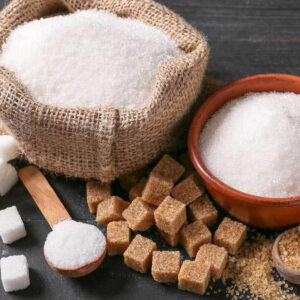The debate on beet sugar vs cane sugar often focuses on processing methods and composition.
The debate on beet sugar vs cane sugar often focuses on processing methods and composition.
Blog Article
Discover the Uses and Benefits of Beet Sugar Vs Cane Sugar in Your Daily Diet
Checking out the unique high qualities of beet and cane sugar reveals more than just their sweetening capabilities; it highlights their special effect on health and cookeries. Beet sugar, known for its refined flavor, is typically favored in fragile desserts, whereas cane sugar, with its hint of molasses, adds richness to durable recipes. Each type holds its own nutritional account and glycemic ramifications, inviting a deeper understanding of their functions in a balanced diet plan and lasting consumption methods.
Beginning and Production Processes of Beet and Cane Sugar

The distinctive climates and dirt kinds needed for expanding sugar beetroots and sugarcane contribute to differences in their growing methods and geographic distribution, influencing the business economics and sustainability of their manufacturing. beet sugar vs cane sugar.
Nutritional Contrast Between Beet Sugar and Cane Sugar
In spite of stemming from different plants, beet sugar and cane sugar are nutritionally extremely comparable, both mainly being composed of sucrose. Each supplies concerning 4 calories per gram, converting to approximately 16 calories per tsp. Structurally, both sugars are composed of about 99.95% sucrose, with marginal quantities of various other materials like moisture and trace element, which do not significantly change their dietary profiles.

Ultimately, when choosing between beet sugar and cane sugar based on nutritional material alone, both offer similar benefits and disadvantages as they are essentially forms of the exact same molecule-- sucrose, supplying fast power without other nutrients.
Influence On Health And Wellness: Glycemic Index and Caloric Content
Discovering even more into the impacts of beet sugar and cane sugar on wellness, it is very important to consider their glycemic index and calorie content. Both sugars are identified as sucrose, which contains glucose and fructose. This make-up leads them to have a similar influence on blood glucose levels. The glycemic index (GI) of both beet and cane sugar is around 65, classifying them as high-GI foods, which can trigger fast spikes in blood sugar degrees. This is an essential element for people handling diabetes or those attempting Going Here to maintain their power levels throughout the day.
Each kind of sugar contains about 4 calories per gram, making their caloric content equivalent. For those keeping an eye on caloric intake, especially when handling weight or metabolic wellness problems, comprehending this equivalence is vital (beet sugar vs cane sugar). However, too much intake of any high-calorie, high-GI food can add to wellness issues such as excessive weight, heart disease, and insulin resistance.
Environmental and Economic Considerations of Sugar Production
Beyond health and wellness effects, the manufacturing of beet and cane sugar also elevates substantial environmental and financial problems. Sugar beet growing often tends to require cooler environments and has a reduced geographical impact contrasted to sugar cane, which flourishes in exotic regions. Both crops are intensive in terms of water use and land profession, possibly leading to deforestation and water scarcity. Financially, the global sugar market is extremely volatile, influenced by changes in international profession policies and aids. Numerous countries incentivize sugar manufacturing with economic support, skewing market rates and impacting small-scale farmers negatively.
Furthermore, using chemicals and plant foods in both beet and cane sugar farming can bring about soil destruction and air pollution, more influencing biodiversity and local water bodies (beet sugar vs cane sugar). The choice between cultivating sugar over here beet or cane typically hinges on regional environmental problems and financial factors, making the sustainability of sugar production a complex issue
Culinary Applications and Taste Differences
While the environmental and economic aspects of sugar production are undoubtedly substantial, the choice in between beet and cane sugar additionally influences cooking applications and flavor accounts. Beet sugar, originated from the sugar beet plant, is understood for its extremely neutral preference. This makes it a versatile active ingredient in cooking, where it does not alter the flavor of various other parts. It liquifies rapidly and is excellent for use in cakes, cookies, and pastries.
Cane sugar, extracted from sugarcane, commonly preserves molasses traces, which present an unique richness and deepness. The small variant in Get the facts dampness web content in between beet and cane sugar can affect the texture and consistency of dishes, making cane sugar a favored option for certain dishes that profit from its unique residential properties.

Verdict
To conclude, both beet and cane sugar have unique origins and production procedures, providing similar nutritional accounts with minor differences in salt content and flavor. While their impact on health and wellness, particularly relating to glycemic index and calories, is equivalent, the choice between them typically boils down to environmental, economic variables, and specific culinary demands. Comprehending these facets can direct consumers in making notified decisions that straighten with their health and wellness goals and flavor preferences.
Report this page